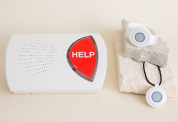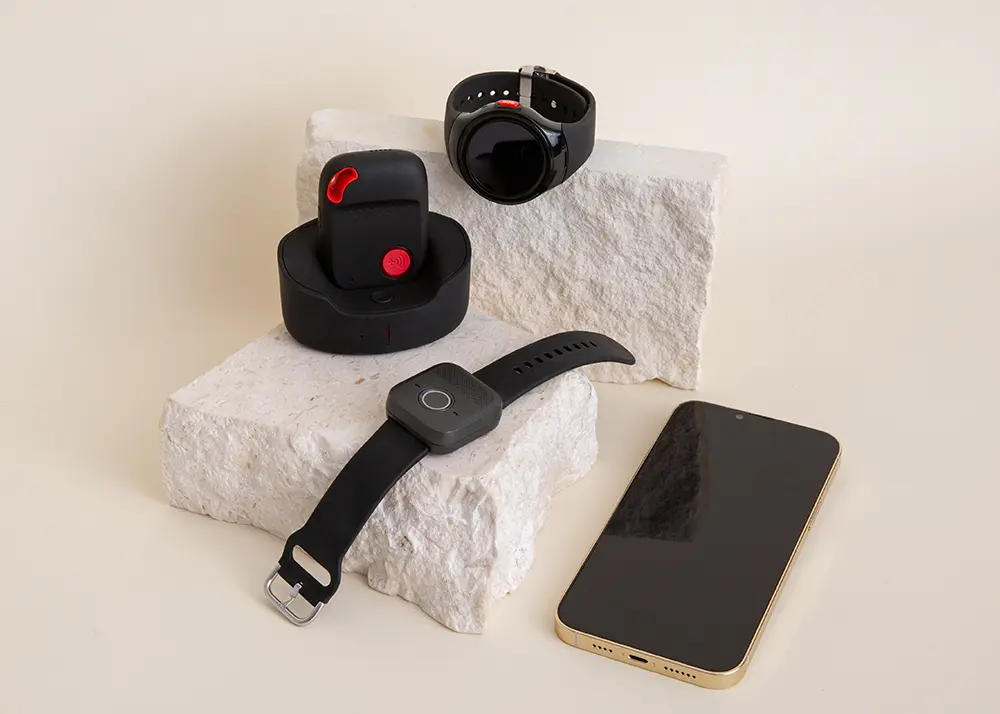Does Medicare or Medicare Advantage Cover Medical Alert Systems?
December 20, 2024
Many people want to know: will Medicare or Medicaid cover my medical alert system or medical alert smartwatch? People also ask us what their insurance options are and what discounts may be available for medical alert systems – we’ll answer all those questions here and review all the options for reimbursement or discounts on purchase costs and monthly fees.
Are Medical Alert Systems Covered By Medicare?
While traditional Medicare doesn’t cover medical alert systems, some Medicare Advantage (Part C) plans and private insurance providers may include them. If your Medicare plan doesn’t offer this benefit, you could still save money through discounts or by using tax-advantaged accounts such as health savings accounts (HSAs) or flexible spending accounts (FSAs).
Medical alert systems play a crucial role in enhancing the quality of life for seniors. Although Medicare doesn’t classify them as “medical necessities,” these systems empower seniors to live independently by providing quick access to help in emergencies. With the push of a button – or automatically in the case of our AI-powered smartwatch – trained operators can dispatch emergency services to the home, saving countless lives every day.
To find out if your Medicare plan covers a medical alert system—and to learn strategies for reducing out-of-pocket costs—read on for helpful tips and advice.

Will my Insurance Company Cover a Medical Alert System?
Coverage for medical alert systems varies by provider. We recommend contacting your insurance company to determine if you qualify for reimbursement. In some cases, insurance providers may cover the cost if the individual’s situation warrants it, often requiring a doctor’s recommendation to approve reimbursement.
Long-Term Care Insurance and Medical Alert Systems
If you have Long-Term Care Insurance, you may be eligible for reimbursement of your medical alert system. This type of insurance is designed to help seniors with medical disabilities cover the cost of home care services and often includes durable medical equipment.
To confirm your eligibility for medical alert system coverage, reach out to your Long-Term Care Insurance provider and inquire about your specific policy benefits. You may also wish to consult a Medicare Broker or State Counselor, visit your local senior center or aging agency, or talk with social service workers who specialize in older adult care.
Alternative Payment Options for Medical Alert Systems
If your insurance doesn’t fully cover a medical alert system, there are still ways to save money or use pre-tax funds to purchase one. Here are some options to consider:
- Medical Alert Discounts: Many providers offer discounts and promotions throughout the year. For instance, Bay Alarm Medical frequently has special deals. See our Medical Alert Pricing page for the current offers.
- Flexible Payment Plans: Most medical alert companies provide various payment options, including month-to-month payments, quarterly plans, or prepayment for six months or a full year, allowing you to choose what fits your budget.
- Health Savings Accounts (HSA): If a family member is covered by an HSA-approved high-deductible health plan, the HSA can be used to pay for approved medical expenses, including medical alert systems.
- Health Reimbursement Arrangement (HRA): Some employers offer HRAs, which are employer-funded accounts that reimburse employees for eligible medical expenses not covered by insurance. Check if your employer provides this benefit.
- Flexible Spending Accounts (FSA): FSAs let employees set aside pre-tax income to cover qualified expenses. Ask your plan administrator if your FSA can be used to purchase a medical alert system.
Additional Resources for Choosing a Medical Alert System
Before selecting a provider, take the time to understand your total upfront costs. Watch out for hidden fees, including equipment charges, activation fees, shipping costs, or security deposits. Review all contracts or service agreements carefully to be aware of potential cancellation fees or special clauses. It’s also important to clarify what happens if you need to cancel the service unexpectedly.
For more guidance, check out our blog post on Questions to Ask Before Purchasing a Medical Alert System and visit our FAQ page for answers to the most common questions.
Our dedicated senior care consultants are here to help you navigate your options. We’re committed to answering your questions honestly and thoroughly—no surprises! Contact us toll-free at 1-877-522-9633, or start an online chat with one of our representatives. We look forward to assisting you!








